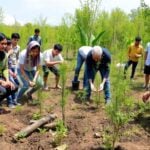When applying for fellowships, scholarships, or individual grants, it is crucial to understand the common reasons for rejection. Many applicants pour their hearts into their proposals, only to receive disappointing news. One of the primary reasons for rejection is a lack of alignment between the applicant’s goals and the mission of the funding organization.
Each fellowship or grant has specific criteria and objectives, and if your application does not clearly demonstrate how your project aligns with these goals, it may be dismissed. Therefore, it is essential to thoroughly research the funding body and tailor your application to reflect their values and priorities. Another frequent reason for rejection is insufficient documentation or incomplete applications.
Many funding opportunities require a variety of supporting materials, such as letters of recommendation, transcripts, or project proposals. Failing to provide all necessary documents or submitting them in an unorganized manner can lead to an automatic disqualification. Additionally, some applicants may overlook the importance of proofreading their applications.
Spelling errors, grammatical mistakes, or unclear language can create a negative impression and suggest a lack of attention to detail. Understanding these pitfalls can help applicants refine their submissions and increase their chances of success.
Gathering necessary documentation
The process of gathering necessary documentation for fellowships, scholarships, and individual grants can be daunting but is essential for a successful application. Start by carefully reviewing the requirements outlined by the funding organization. Each opportunity may have different documentation needs, so it is vital to create a checklist to ensure you have everything in order.
Common documents include academic transcripts, letters of recommendation, a personal statement, and a detailed project proposal. By organizing these materials early in the process, you can avoid last-minute stress and ensure that your application is comprehensive. In addition to standard documents, consider including supplementary materials that can enhance your application.
For instance, if you are applying for a research grant, providing evidence of previous work or publications can demonstrate your capability and commitment to your field. Similarly, if you have participated in relevant workshops or conferences, including certificates or summaries can showcase your dedication to professional development. The goal is to present a well-rounded picture of your qualifications and experiences that align with the funding opportunity.
Improving credit score
While credit scores are often associated with loans and mortgages, they can also play a role in securing fellowships and grants, particularly those that require financial need assessments. A low credit score may raise concerns about an applicant’s financial responsibility and reliability. Therefore, taking steps to improve your credit score can be beneficial not only for personal finance but also for enhancing your eligibility for certain funding opportunities.
Start by reviewing your credit report for any inaccuracies or discrepancies that could be negatively impacting your score. Disputing errors can lead to significant improvements. Additionally, focus on paying down existing debts and making timely payments on any outstanding bills.
Establishing a consistent payment history demonstrates financial responsibility and can gradually boost your credit score over time. If you have high credit utilization ratios—meaning you are using a large percentage of your available credit—consider reducing your balances or requesting higher credit limits to improve this ratio. By actively managing your credit profile, you can present yourself as a more reliable candidate for funding opportunities that consider financial stability as part of their evaluation criteria.
Exploring alternative lenders
In the quest for fellowships, scholarships, and individual grants, it is essential to explore all available options, including alternative lenders. While traditional funding sources such as government grants and university scholarships are well-known, alternative lenders can provide unique opportunities that may not be on the radar of many applicants. These lenders often have different criteria and may be more flexible in their requirements, making them an attractive option for individuals who may not qualify for conventional funding.
Alternative lenders can include private organizations, non-profits, or even crowdfunding platforms that support specific projects or initiatives. For instance, some organizations focus on funding creative endeavors or social impact projects that align with their mission. By researching these alternative sources, you may discover funding opportunities that resonate with your goals and aspirations.
Additionally, many alternative lenders offer mentorship or networking opportunities alongside financial support, which can further enhance your professional development.
Seeking professional assistance
Navigating the world of fellowships, scholarships, and individual grants can be overwhelming, especially for first-time applicants. Seeking professional assistance can provide valuable guidance and increase your chances of success. Consider working with a mentor or advisor who has experience in grant writing or has successfully secured funding in the past.
They can offer insights into what makes a compelling application and help you identify potential pitfalls to avoid. Moreover, there are numerous workshops and resources available that focus on grant writing and application strategies. Many universities and community organizations offer training sessions that cover everything from crafting a strong personal statement to understanding the nuances of budget proposals.
Engaging in these educational opportunities can equip you with the skills needed to present your case effectively. Professional assistance not only enhances the quality of your application but also provides you with a support system throughout the process.
Making a strong appeal case
Understanding Rejection and Crafting a Strong Appeal
If you face rejection after submitting an application for a fellowship, scholarship, or individual grant, do not lose hope. There is still an opportunity to make a strong appeal case. To begin, carefully review the feedback provided by the funding organization. Understanding their reasoning can help you address specific concerns in your appeal letter.
Key Elements of a Successful Appeal
When crafting your appeal case, be sure to express gratitude for their consideration and acknowledge any shortcomings in your original application. Focus on presenting new information or clarifications that strengthen your original proposal. This could include additional data supporting your project’s impact or testimonials from individuals who can vouch for your qualifications. It is essential to maintain a professional tone throughout your appeal while clearly articulating why you believe your application deserves reconsideration.
Enhancing Your Chances of Securing Funding
A well-structured appeal not only demonstrates resilience but also showcases your commitment to pursuing funding for your goals. By understanding the reasons for rejection, gathering necessary documentation meticulously, improving credit scores where applicable, exploring alternative lenders, seeking professional assistance when needed, and making strong appeal cases if necessary, applicants can significantly enhance their chances of securing funding.
If you are looking for funding opportunities beyond loans, you may be interested in the Open Call: Finnish Centres of Excellence in Research Funding Program. This program offers grants for research projects in Finland, providing a different avenue for financial support. It could be a valuable resource to explore alongside strategies for appealing a rejected loan application.
FAQs
What is a rejected loan application?
A rejected loan application is when a lender declines to approve a borrower’s request for a loan, citing reasons such as poor credit history, insufficient income, or high debt-to-income ratio.
What are common reasons for a loan application to be rejected?
Common reasons for a loan application to be rejected include a low credit score, insufficient income, high debt-to-income ratio, lack of collateral, and a history of late payments or defaults on previous loans.
What steps can be taken to appeal a rejected loan application?
To appeal a rejected loan application, borrowers can start by understanding the reasons for the rejection, providing additional documentation or information to address the concerns raised by the lender, and considering alternative lenders or loan products that may be more suitable for their financial situation.
Is it possible to improve the chances of a successful appeal for a rejected loan application?
Yes, borrowers can improve the chances of a successful appeal by working to improve their credit score, reducing their debt-to-income ratio, providing additional income documentation, and addressing any issues that led to the initial rejection.
What should borrowers do if their loan application is rejected?
If a loan application is rejected, borrowers should request a written explanation of the reasons for the rejection, review their credit report for any errors, consider alternative loan options, and work on improving their financial situation before reapplying for a loan.


























